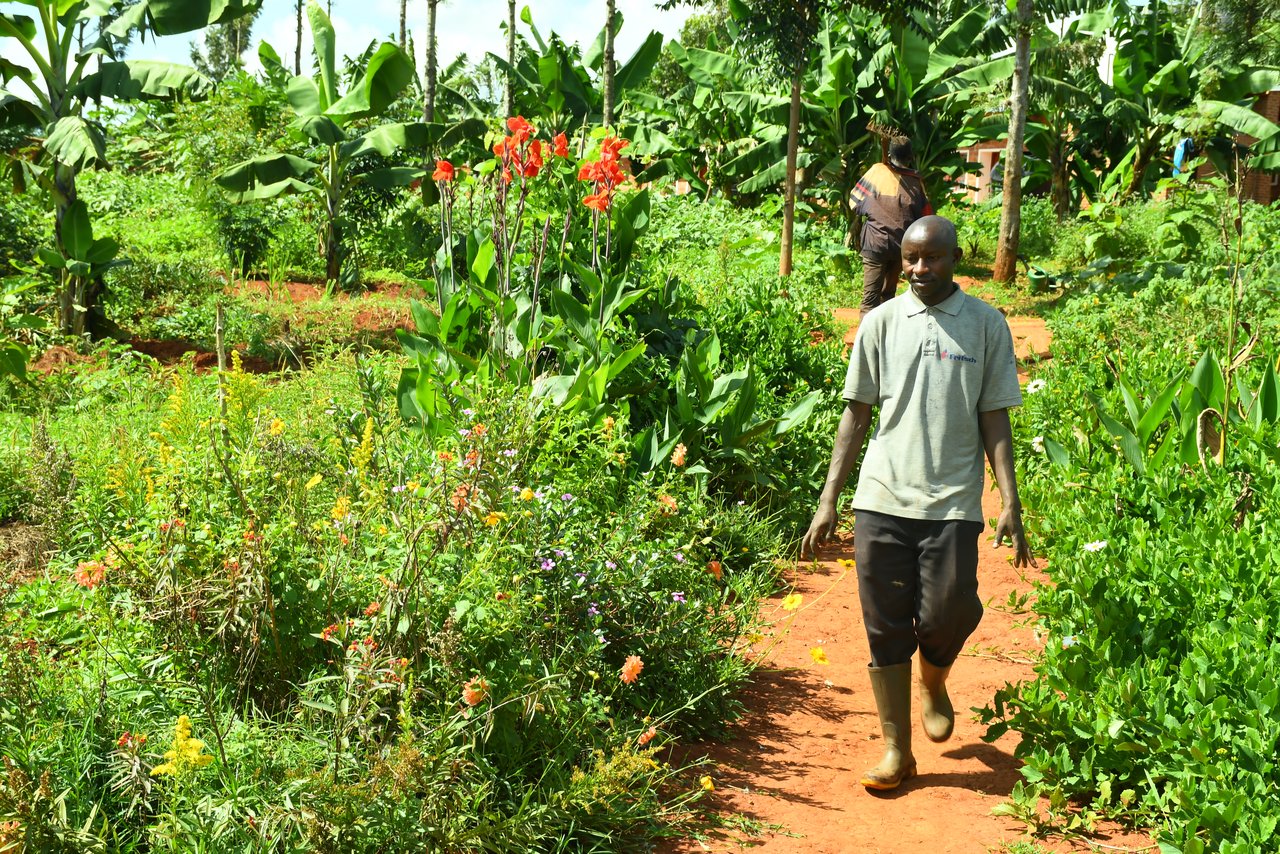
Project management
As the implementing organization, AKI is involved in various international projects in the agricultural and food sector. AKI supervises bilateral cooperation programs with our partner countries, such as Russia, Kenya, Georgia and Burundi, on behalf of public sponsors, such as the German Corporation for International Cooperation (GIZ), the Federal Ministry of Food and Agriculture (BMEL), as well as the Ministry for Rural Affairs and Consumer Protection Baden-Württemberg.
The project planning is specified according to the wishes and requests of the corresponding partner. In this way, existing international contacts will be strengthened and enhanced. AKI always remains open to further projects.
The project work from AKI has a strong focus on topics such as:
- Agricultural production technology
- Company management and entrepreneurship
- Setting up associations and developing organizations
- Sustainable natural resources
- Quality management of agricultural products and food
- Ecological and sustainable agriculture
- Building value chains (Field to Fork)
- Marketing agricultural products
In Burundi, East Africa, the production of sufficient and sustainably produced food is a central goal. As a result of high land use pressure and the resulting deforestation of mountainous regions in combination with heavy rainfall, the preservation of soil fertility is one of the essential factors for sustainable agriculture. Additional challenges of the country are socio-economical such as poverty, overpopulation and an inadequate educational infrastructure.
Since July 2020 a 5-hectare area near the capital Gitega has been transformed according to permaculture principles. Permaculture is a sustainable and alternative concept for agriculture and horticulture based on observing and imitating natural ecosystems and cycles of nature. It is an agricultural design method based on the ethical principles:
- Earthcare (care for the earth and life),
- Peoplecare (care for the people),
- Fairshare (fair sharing and limited use of resources).
In addition to the design elements typical for permaculture, such as edible forest garden, herb spiral, solar dryer, etc., the core element will be the “AgriSocial Education and Training Centre”, where multipliers such as teachers as well as farmers, students and, based on the principal of inclusion, disadvantaged persons will be educated and trained. Together, AKI and the project partners face the social and ecological challenges of Burundi thus making a local contribution to improving the living conditions of present and future generations in Burundi in the sense of capacity building.
The project "Establishment of an Agri-Social Education and Training Center in Gitega, Burundi", which was launched between July 2020 and December 2021, has been extended to include the establishment of local value chains since the beginning of 2022 and has since been continued under the title "Extension of an Agri-Social Education and Training Center in Gitega, Burundi" until the end of 2022.
Since 1980, there has been a partnership between Baden-Württemberg and French-speaking Burundi. The project "Extension of an Agri-social Education and Training Center in Gitega, Burundi" is funded by the Ministry of Food, Rural Affairs, and Consumer Protection Baden-Württemberg (MLR) with the project management being carried out by AKI. The local project partners are Father Walter Stärk, who has been a local resident for many years, the Christian community "Camelius" and the primary and secondary school St. Kizito in the south of the capital Gitega. They will be in charge of managing the AgriSocial Education and Training Centre beyond the project period.
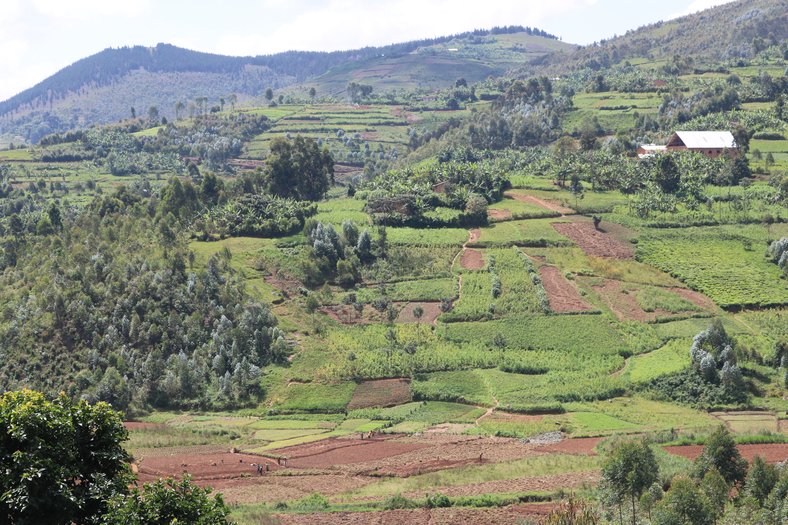
SACAU: Exchange on climate resilient agriculture
AgrarKontakte International (AKI) e.V., in cooperation with the Andreas Hermes Academy (AHA), is implementing a capacity building project for members of the Southern African Confederation of Agricultural (SACAU), the umbrella organization of 19 national farmers' organizations in Southern Africa, on climate resilience and other topics of strategic importance in agriculture, as part of a bilateral cooperation project of the German Federal Ministry of Food, Agriculture and Consumer Protection (BMEL).
AKI is responsible for two main activity areas of the project:
1. Capacity and network building of long-term expert in Germany, June 2022
In this framework, two long-term experts from SACAU travelled to Germany in July 2022 and exchanged with various experts and following institutions:
- Federal Ministry of Food and Agriculture (BMEL)
- German Farmers' Association (DBV)
- Center for Development Research (ZEF)
- German Committee for Disaster Reduction (DKKV) e.V
- University of Göttingen, LEMKEN GmbH & Co
- Farmers' and Winegrowers' Association Rhineland-Palatinate South, (BWV) e.V.
- Augustenberg Agricultural Technology Centre
- Forest Research and Testing Institute Baden-Württemberg
- BayWa AG
- Federation of German Rural Youth
- TMG Think Tank for Sustainability
- Unique land use GmbH
- Bioland Foundation
- German Association for Agroforestry
- German Agricultural Society
- Thünen Institute
- Federal Research Institute for Rural Areas, Forests and Fisheries
2. Study trip to Germany, October 2022
In addition AKI organizes and accompanies the study trip of a delegation with more than 20 participants from the 11 different African countries Seychelles, Zimbabwe, Malawi, Botswana, Mozambique, Madagascar, Eswatini, Tanzania, Mauritius, Lesotho, and Namibia. The group is visiting different institutions and will exchange with different experts on climate resilience and other topics of strategic importance in agriculture.
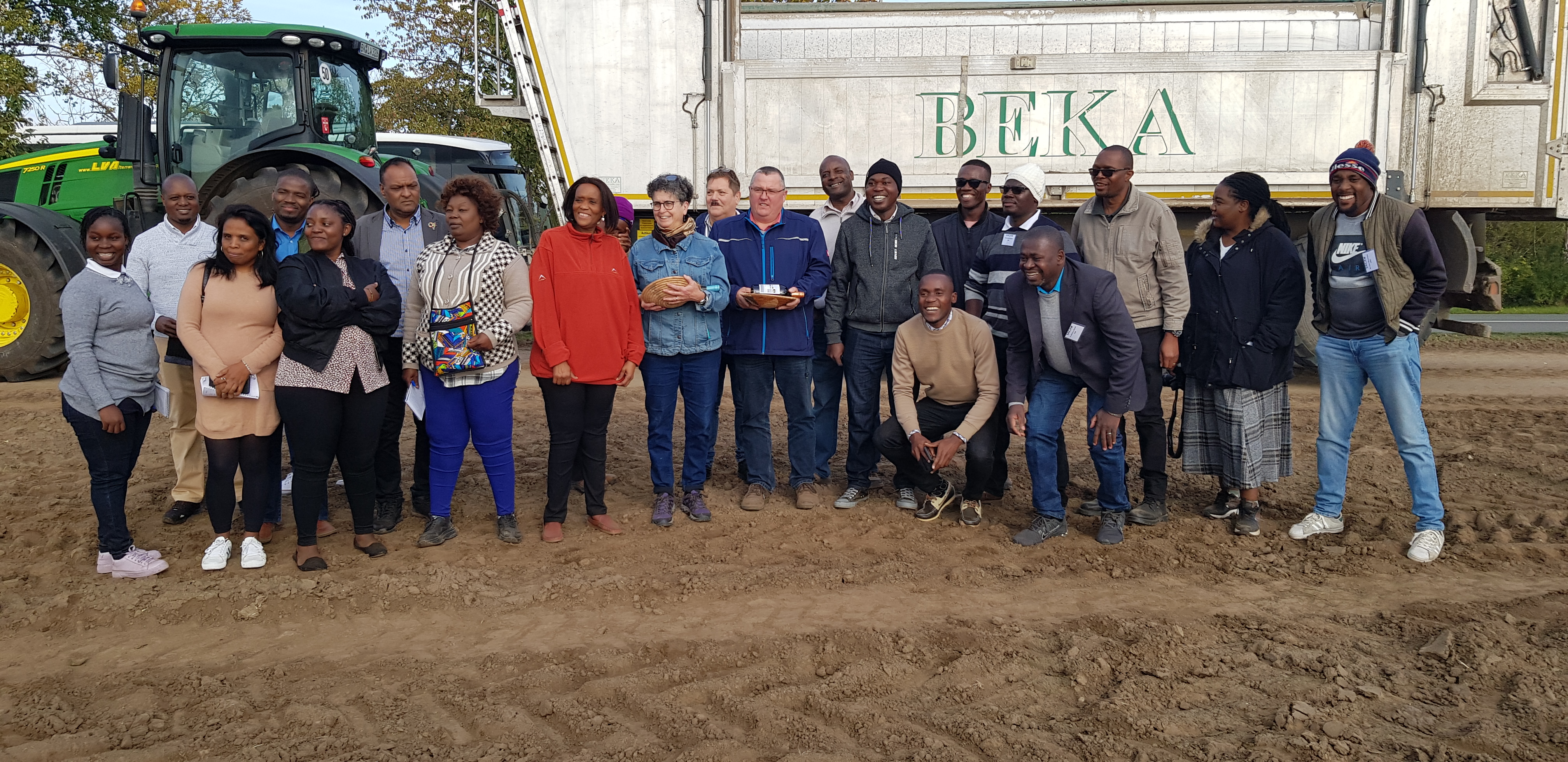
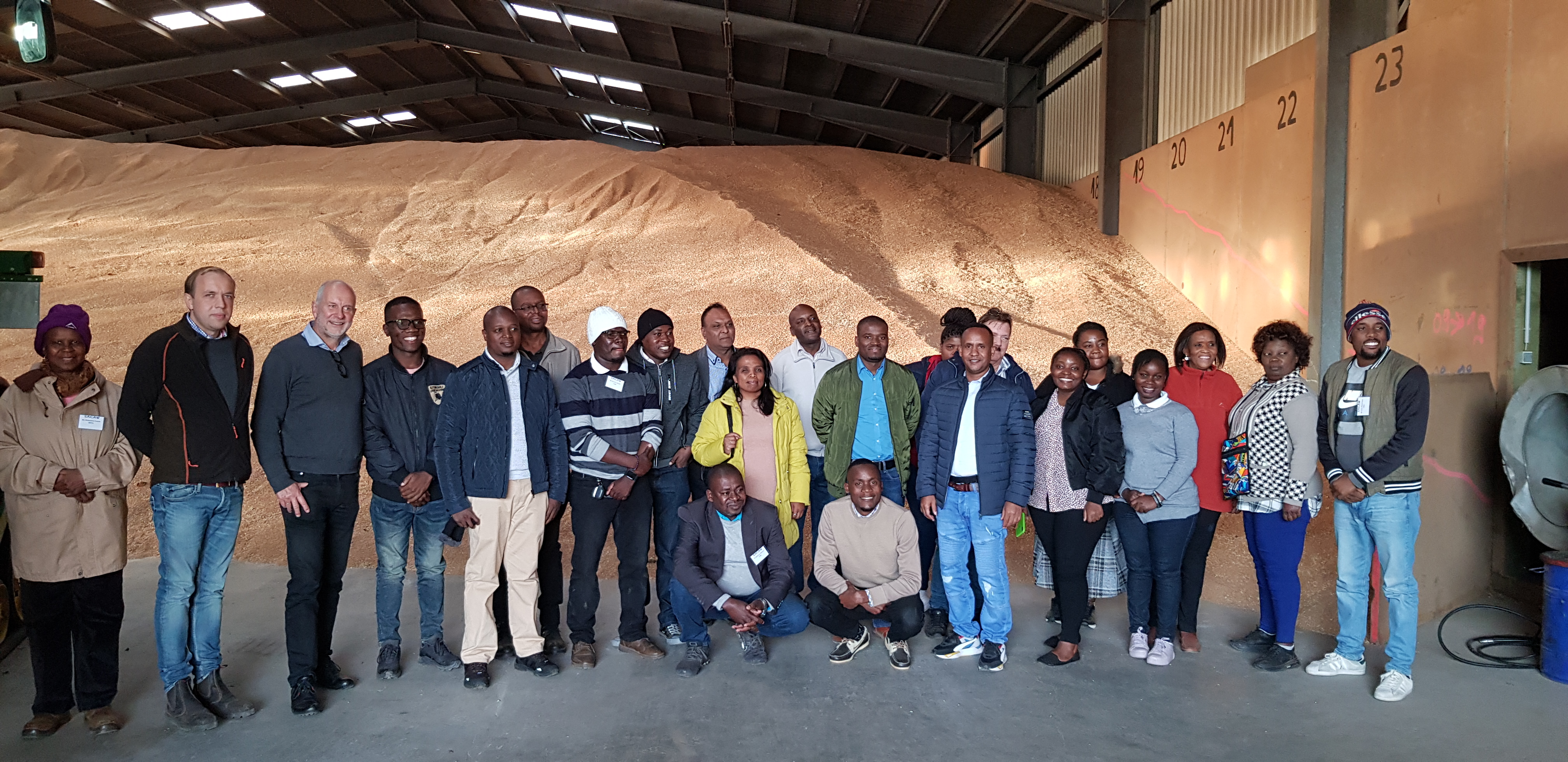
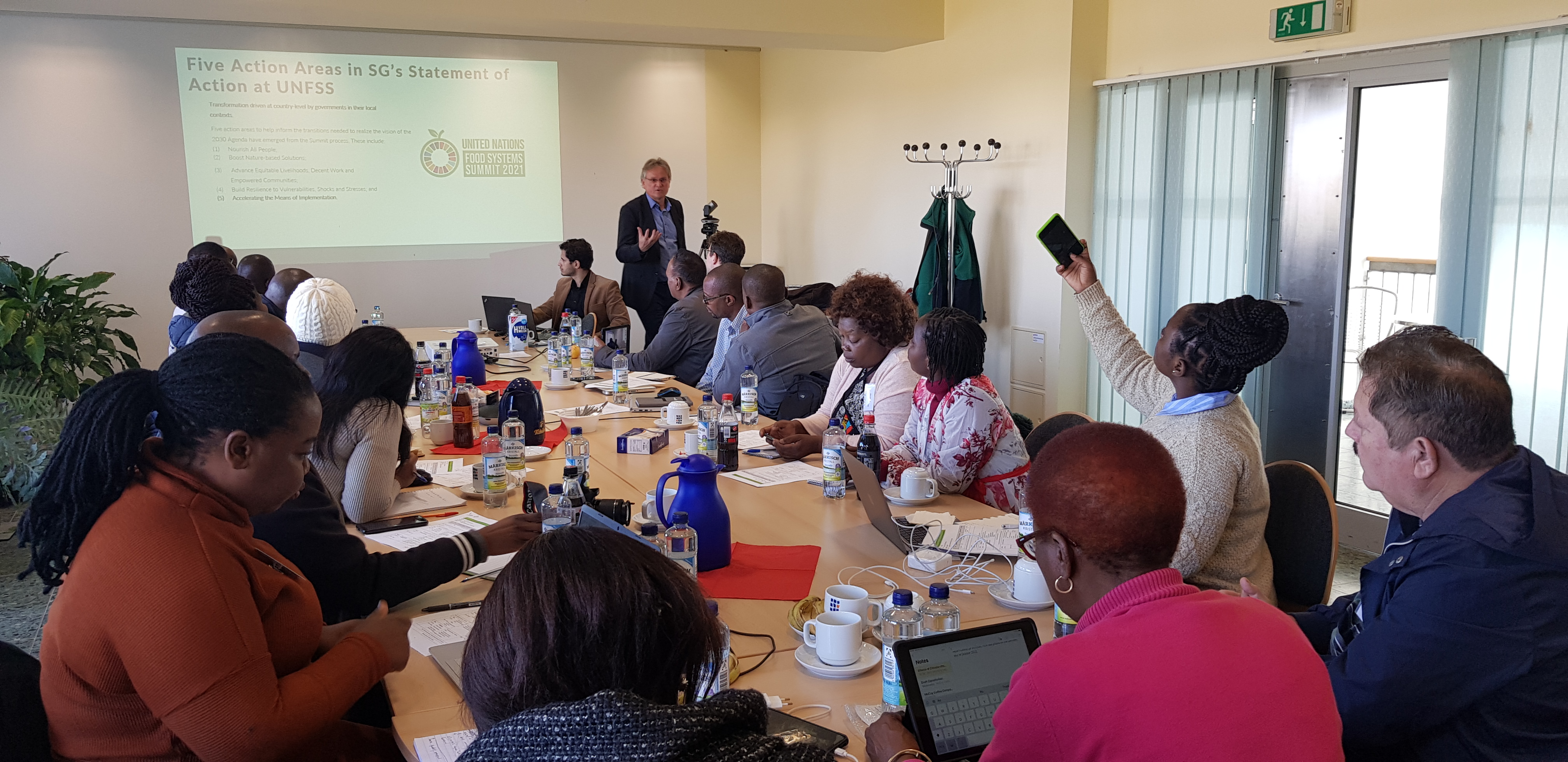
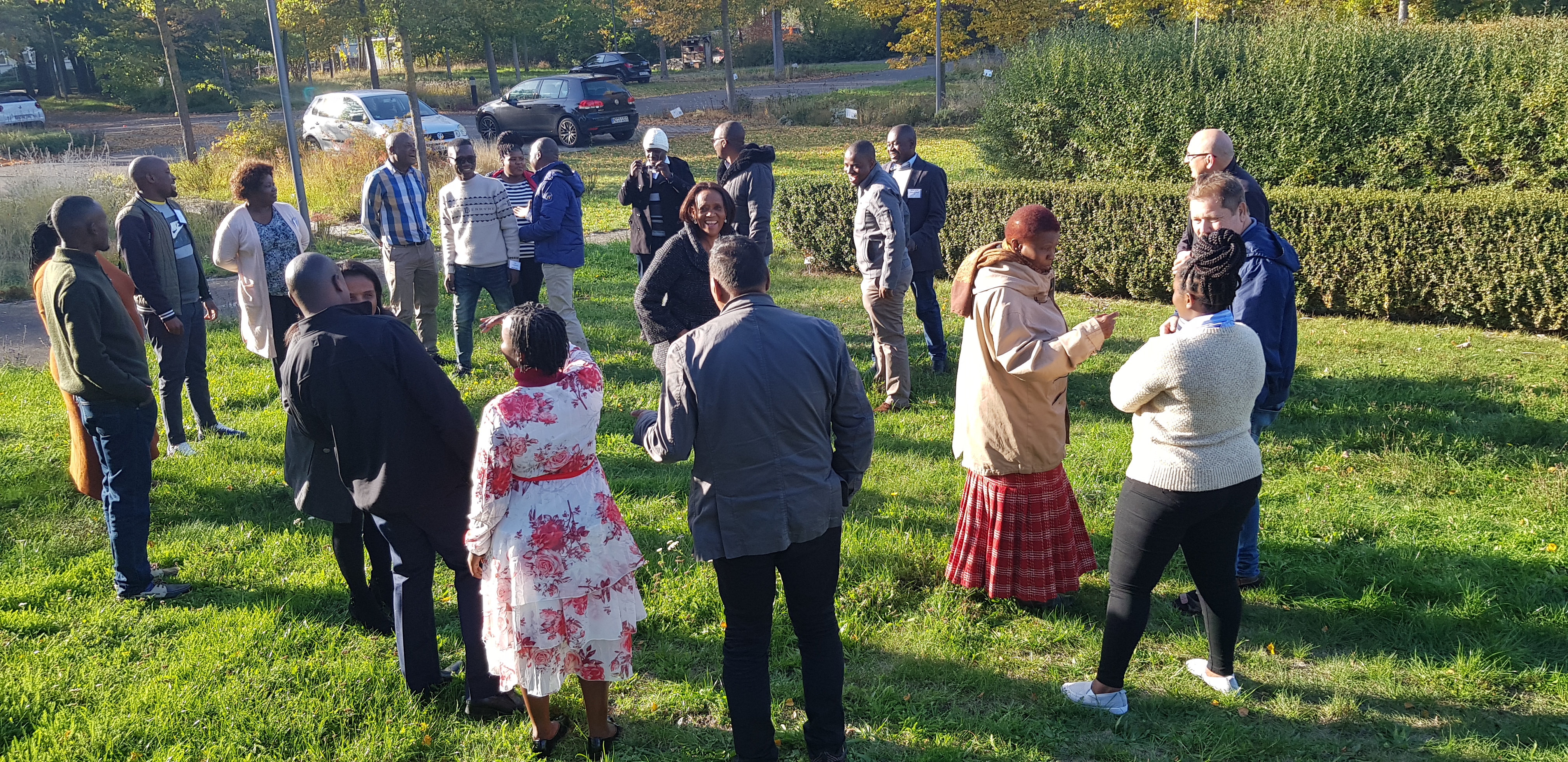
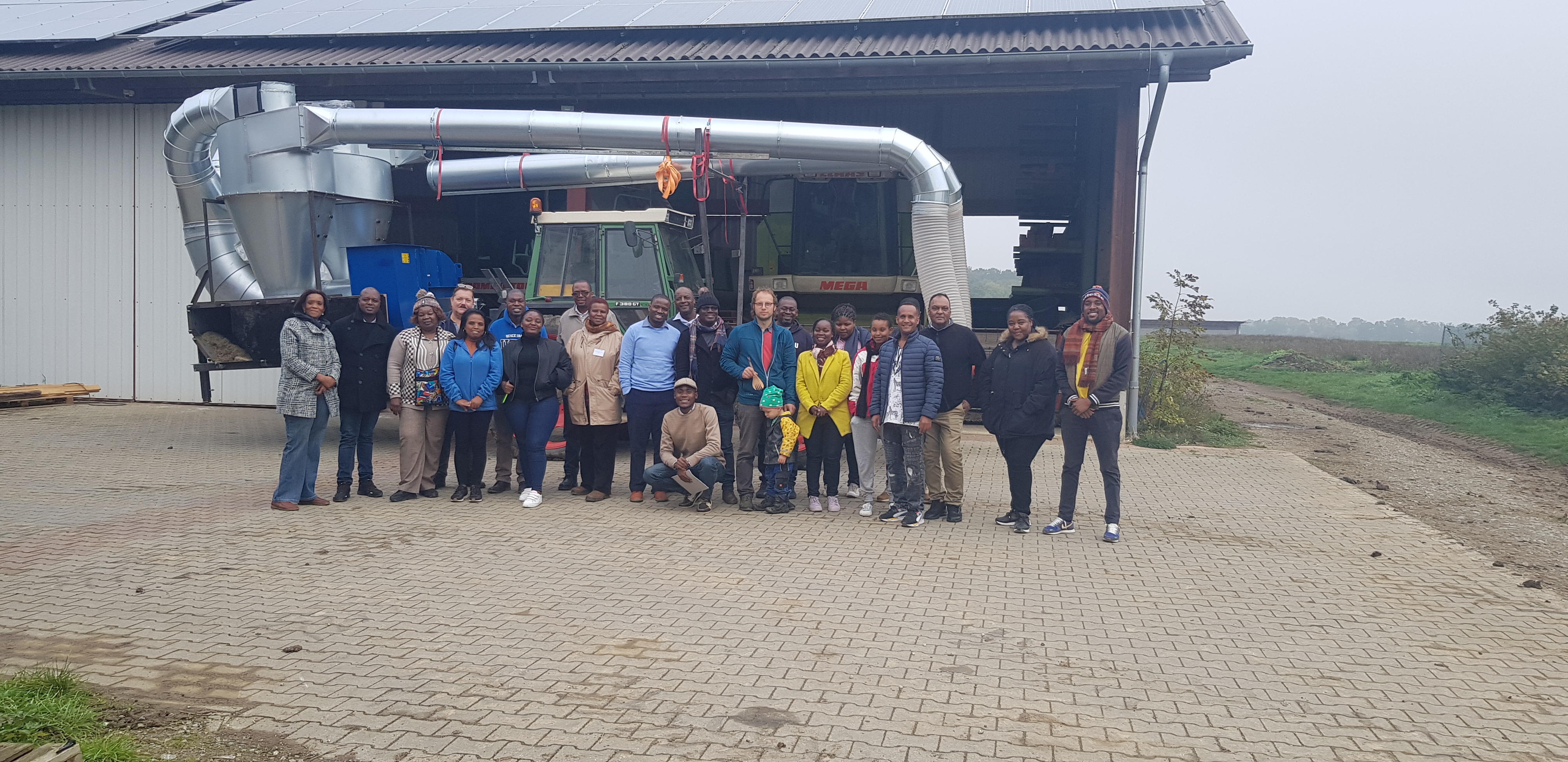
SACAU / CEJA Exchange Program
In this project, 20 African youth representatives of farmers' associations from eight different African countries Tanzania, Eswatini, Mauritius, Namibia, Botswana, Eswatini, Seychelles and Zimbabwe (next year this exchange program will be carried out with other countries) will be introduced to European association structures through a 1-week technical excursion to Brussels. Through a subsequent 1-week tandem exchange on farms of European youth representatives who also participated in the technical excursion to Brussels, the youth representatives will further be brought together on a personal, professional as well as on an association and/or technical level.
The exchange is composed of two components:
- Field trip & team building in Brussels, Belgium, October 2022:
In Brussels, participants from Africa will have the opportunity to attend a CEJA working group meeting and interact with other relevant stakeholders in the European agricultural policy system. In addition, the first meeting with the tandem partner, youth representatives from different European countries will also take place during this week.
- Stay on the farm, November 2022:
The African and European youth representatives will travel/fly together in pairs to the farms in the different European countries after the joint workshop. During the time together on the farm, the connection and the exchange among each other on a personal, professional as well as on an association level shall be deepened.
The project is implemented by the Andreas Hermes Academy (AHA), the European Council of Young Farmers (CEJA) and AgrarKontakte International (AKI) e.V. in cooperation with The Southern African Confederation of Agricultural (SACAU).

Rapid change in agriculture, partly caused by globalization and climate change, affects farmers worldwide. Many countries are facing major political and systemic changes, which generate further challenges but also opportunities for farmers and their organizations.
The family has been and still is the center of agricultural production worldwide and its social anchoring must be further strengthened in the future. This is also supported by the Global Action Plan: UN Decade of Family Farming, launched in 2020 by the Food and Agriculture Organization of the United Nations (FAO). The action plan provides a good basis for addressing the issue of family-based agriculture, presenting challenges and opportunities and strengthening the role of Farmers' Organizations (FOs) in promoting family-based agriculture.
As part of the project "Transitional Agriculture: Promoting exchanges between FOs", which is funded by the Federal Ministry for Economic Cooperation and Development (BMZ), AgrarKontakte International (AKI) e.V. organizes together with the Andreas Hermes Academy (AHA) under the patronage of the World Farmer‘ Organisation (WFO) seminars on various topics related to "Transitional Agriculture". The participants are a diverse group of members of the respective FOs from Germany, Russia, Ghana, Malawi, Rwanda and Zimbabwe, who collaborate interactively during the seminars.
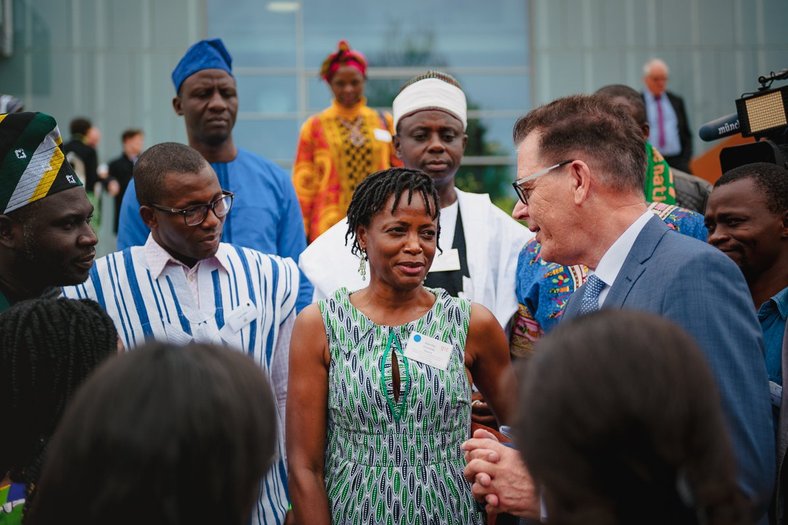
Within the framework of this partnership project, financially sponsored by the bilateral cooperation program of the Federal Ministry of Food and Agriculture (BMEL) since 2009, the partnership between the German Farmers’ Association e.V. (DBV) and the Association of Russian Farm Enterprises and Agricultural Cooperatives (AKKOR) was bilaterally deepened.
The project was carried out jointly between the DBV and AKI. The main goal of the collaboration in this cooperation project was to assist AKKOR, through the further-development of the association’s structure and improvement of the association’s management, to more effectively represent the interests of family-run farms and rural cooperatives as well as the entire rural area of Russia and to be able to “speak with one voice” within politics, administration, economy and society in Russia.
The project was particularly focused on the development of regional and district associations and on supporting and providing consultation to improve the association’s management in all areas. In this effect, an intense consultation was carried out with questions aimed towards the association’s management, including what services are offered by the association. Both partner associations organized numerous joint seminars and training courses in Russia and in Germany, as well as consultation activities in Russia for both volunteer and official representatives of the association. For AKKOR functionaries, seminars were presented in Germany to particularly discuss the method of operation in a German farm association, as well as in agricultural merchandise cooperatives. Furthermore, this project assisted the Russian agricultural association in developing stronger networking with agropolitical and agroeconomical protagonists at both the national and international level.
On September 1st and 2nd, 2018, the sixty-fifth World Ploughing Championship was held at the Herzog von Württemberg Hofgut Einsiedel farm estate in Baden-Württemberg. Around 30,000 visitors from near and far followed the contests on both days, where 56 participants from 28 nations competed in stubble and grassland ploughing.
The goal of the World Ploughing Championship 2018, in addition to the pure ploughing competition, was to present the national and statewide agricultural and food economy in an attractive light to a wide international, national and regional audience.
The organizer of the competition was the Kuratorium Weltpflügen 2018 e.V., exclusively founded for this purpose, under the chairmanship of Helmut Wolf. The management of the Kuratorium was delegated to AgrarKontakte International (AKI) e.V..
Further information and surveys on this outstanding event can be found here: www.weltpfluegen2018.de
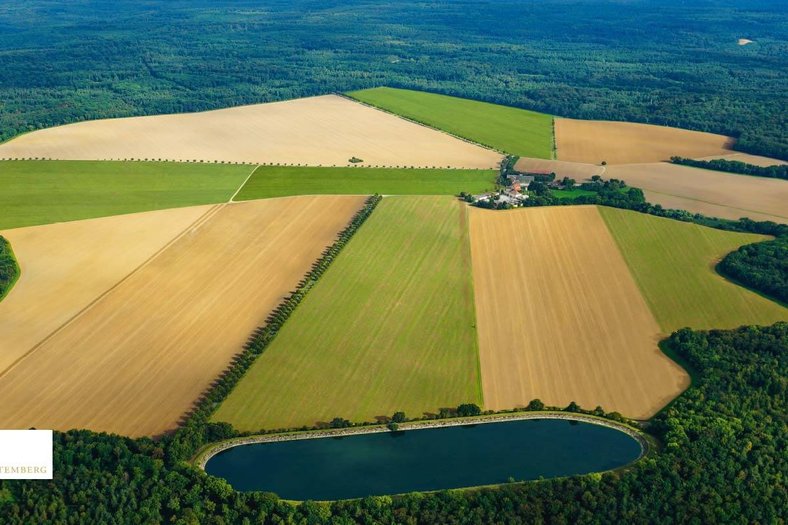
- Topic: Cooperation project – Exchange of experience and transfer of knowledge and methods on agricultural education and training – Dual training system; Association project: DBV-VNFU; Year: 2011-2017
- Topic: Support of market study in Vietnam; Production of dried fruits and dried vegetables; Year: 2016
- Topic: Innovation transfer in the context of the EU Danube area Strategy for the introduction of the dual training program for wineries in Hungary; Year: 2013-2014
Contact
![[Translate to Englisch:] [Translate to Englisch:]](/fileadmin/_processed_/6/4/csm_IMG_9169__HP__52fcf76f83.jpg)
Teklezghi Teklebrhan
Project Management- Telephone: +49 711 6520587 4
- Mobile phone: +49 172 3711 303
- E-mail: t.teklebrhan(at)agrarkontakte.de
AgrarKontakte International (AKI) e.V.
Wollgrasweg 31
70599 Stuttgart
Phone: +49 (0) 711 6520587-0
Fax: +49 (0) 711 6520587-9
Email: aki(at)agrarkontakte.de

